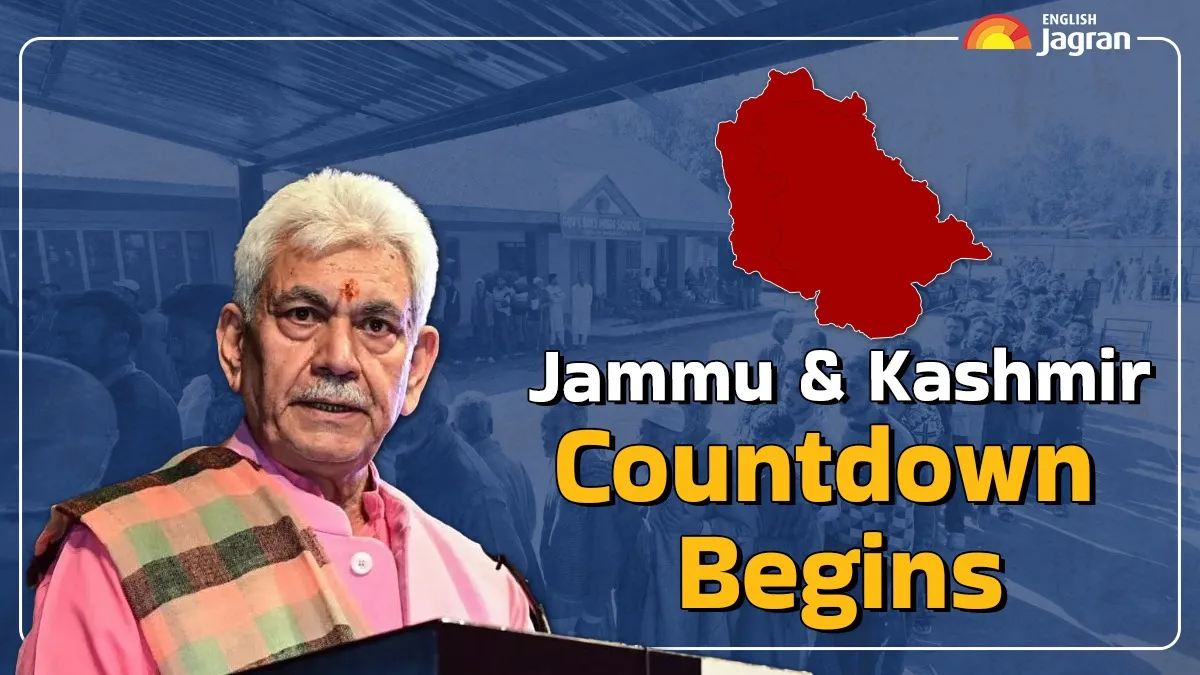- By Abhishek Sheoran
- Tue, 08 Oct 2024 06:33 AM (IST)
- Source:JND
People across the country are eagerly awaiting the high-stakes Jammu and Kashmir Assembly election results, as the newly formed Union Territory holds its first polls in over a decade. While post-poll surveys predict a fractured mandate, both psephologists and legal experts are grappling with uncertainty regarding the role of five nominated members—a provision introduced by the Centre after the Jammu and Kashmir Reorganisation Act, 2019. Political parties are now anxious and concerned about the influence of these five members, who will be nominated to the Assembly by the Lieutenant Governor.
About 5 Nominated MLAs
In a significant move, the Centre has introduced a provision for the nomination of five members to the Union Territory's Assembly by the Lieutenant Governor. This reform, which raises the total strength of the Assembly to 95, sets the majority mark at 48.
Initially, the proposal included the nomination of two members. However, a 2023 order expanded this to five. These five nominated members will represent key sections of JK: two women, two Kashmiri Pandits, and one displaced person from Pakistan-Occupied Kashmir (POK). Though the JK unit of BJP says the members will have the right to cast a vote in the majority test of the new government, there is no official order on whether or not nominated members would have equal rights as that of the elected lawmakers.
Opposition’s concerns
Opposition parties in JK have rebuked the move as ‘unconstitutional’, as they fear the nominated members would unanimously vote for the BJP and it would add five members to its tally without any election. Farooq Abdulla-led National Conference (NC) said such powers, to nominate members, lie solely with the elected government and LG was not entitled to take decisions in this regard. JK unit of the Congress has also slammed the move, calling it a “pre-poll rigging”.
-1728294035478.jpg)
Other Opposition leaders said LG should not make nominations without the “aid and advice” of the Council of Ministers that is to be sworn in soon. However, the BJP has said it was clearly not required as per the J-K Reorganisation Act.
J-K Reorganisation Bill
The Lok Sabha introduced the Jammu and Kashmir Reorganisation (Amendment) Bill, 2023 and the Jammu and Kashmir Reservation (Amendment) Bill, 2023 after the abrogation of Article 370 from the state.
The Jammu and Kashmir Reorganisation (Amendment) Bill, 2023 on the other hand provides representation in the Legislative Assembly to the Kashmiri Migrants and displaced persons from the PoK.
The bill aimed to raise the total number of seats in the Jammu and Kashmir legislative assembly from 107 to 114. Of these, 7 seats have been reserved for scheduled caste members, while 9 were allocated for legislators from scheduled tribes. The bill also maintained that 24 seats will remain vacant until Pakistan-occupied Kashmir is reclaimed. Consequently, the effective strength of the Assembly has been increased to 90.
BJP’s Master Plan To Intrude JK
The aforementioned moves are said to have been effectuated by the BJP to create political inroads in the politically fickle Jammu and Kashmir. Under the delimitation exercise, as many as six seats have been reduced in the valley (where the BJP has an insignificant presence) and added to the Jammu region, where the saffron party is quite hopeful.

Besides, the nominated members (if permitted to cast a vote) are also likely to support the BJP to reach the magic number.
ALSO READ: UP Man Marries Own Sister In Hathras To Get Rs 35,000 Under Mass Marriage Scheme
Moreover, unlike in former elections, more than 40 per cent of the 908 candidates in the fray are independents, which the Opposition claims have been fielded by the BJP to divide votes.
Setting aside all the conjectures, the fate of the political parties and candidates will only be decided after the Jammu and Kashmir Assembly results are out on Tuesday.
